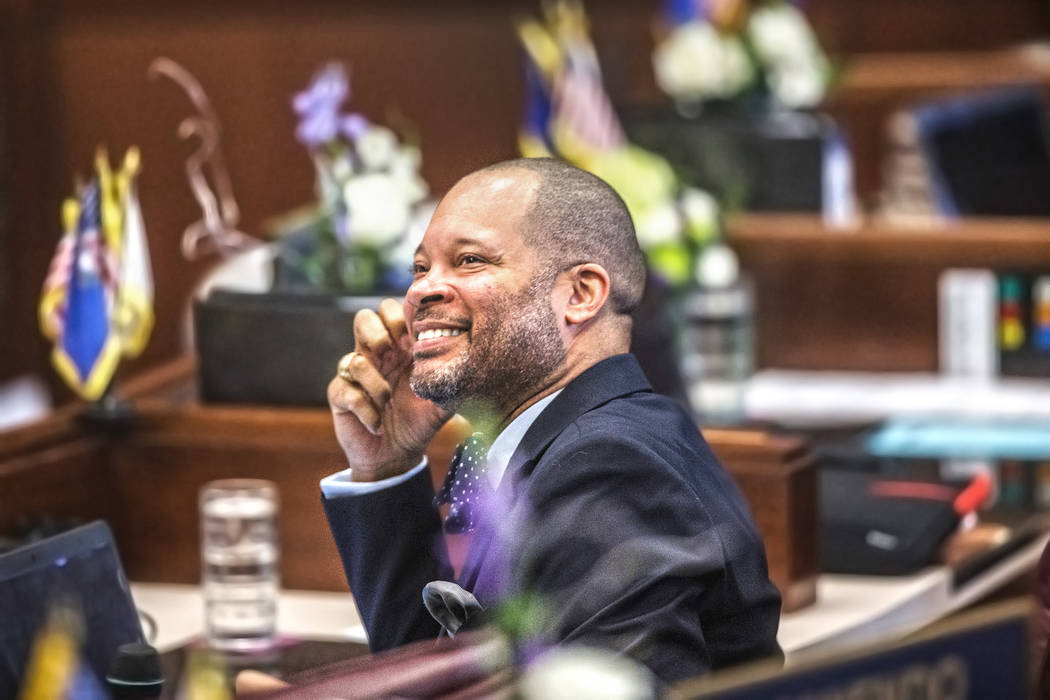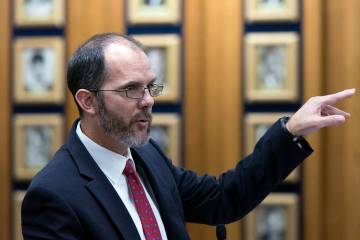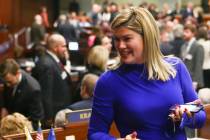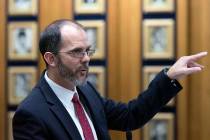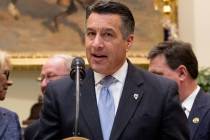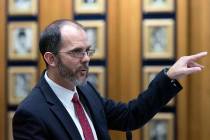Parties split on bill to hike Nevada minimum wage
CARSON CITY — A bill to gradually raise Nevada’s hourly minimum wage won approval Wednesday on a partisan vote in the state Senate.
Senate Bill 106, sponsored by Majority Leader Aaron Ford, D-Las Vegas, was approved 12-9, with independent Sen. Patricia Farley joining with the Democratic majority. All Republicans voted no.
Nevada’s minimum wage is two-tiered, currently $7.25 per hour if an employer offers health insurance and $8.25 if insurance is not offered. SB106 would raise those minimums by 75 cents per hour each year for five years until they reach $11 and $12, depending on if insurance is offered.
The bill now goes to the Assembly.
Another bill that originated in the lower house initially sought to increase the state minimum wage to $15 per hour. But that measure was amended to remove the wage hike and now only requires that employers offer acceptable, qualified health plans to qualify for paying workers the lower hourly rate.
That bill was approved by a committee and is pending action by the full Assembly.
Contact Sandra Chereb at schereb@reviewjournal.com or 775-461-3821. Follow @SandraChereb on Twitter.
RELATED
Minimum wage proposal would change Nevada Constitution
Proposal to increase Nevada minimum wage packs hearing rooms across state
Nevada's minimum wage to remain unchanged, officials say



